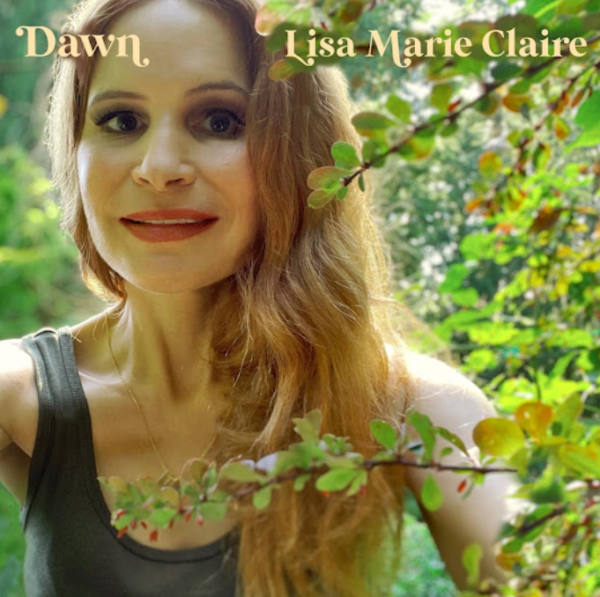
Dawn is the latest full-length album from Seattle, Washington based singer/songwriter Lisa Marie Claire and arguably her best yet. This veteran of the indie music scene carries on the tradition of thoughtful and poetic material pioneered by predecessors such as Emmylou Harris, among others. The vibrant cinematic attributes of her music, primarily relying on the songs’ underlying dynamism, is no surprise; Claire has made her desire to segue into scoring films clear. She steers the ship in several ways, as well, serving as the project’s producer, engineer, and mixer. It may seem like a lot for any performer to take on, but Claire handles the task with skill and considerable aplomb.
TWITTER: twitter.com/lisamarie4596?lang=bg
She opens Dawn shooting for the moon. “Redwood Wrecks” begins the collection with a spartan arrangement. We hear Claire’s voice accompanied by keyboards, synthesizer, and piano for the first two plus minutes before drumming punctuates the relative silence. The impact of “Redwood Wrecks” deepens with the introduction of a full band arrangement as the contrast between the song’s forceful drumming and Claire’s crystalline vocals is a compelling listening experience. It’s the album’s longest song and testifies to the deceptive ambition powering the songs.
“Please Stop Turning” has a light quasi-shuffle quality many listeners will find appealing. It’s far more traditional in its instrumentation and tone than the aforementioned song. She goes a step further tethering herself to country music roots with the inclusion of pedal steel guitar and Jordan Walton’s playing fills the track with melancholy. “Names and Faces” has a relaxed mid-tempo gait and a gentle wafting quality. It is an effective mask for the melancholy lurking beneath the song’s surface and Claire’s voice accentuates its character.
The cheerily titled “There’s Always Suicide” achieves similar effects. Interesting chord changes and nearly imperceptible tempo shifts are among the song’s strengths, but there are others. Claire is unafraid to incorporate unexpected instrumentation into her compositions and the lyric doesn’t pull its punches. It’s an unquestionable highlight. Dawn’s second longest track “Unstrange” ramps up the pace rather than lingering like so many of the preceding songs. Mental distress rarely sounds so inviting. Musical highlights include inventive bass playing and loose yet precise percussion.
Ambient musical color and piano kicks off the penultimate tune. “Moon and Cross” avoids the same assertive band arrangement heard in earlier songs and instead comes across like high end pop. Piano is a constant throughout the performance and gives the song an added degree of eloquence it might have otherwise lacked. It’s a lyrical high point, for sure, and one of the album’s most intimate moments.
The finale “All the Stars” is a fantastic closer featuring an assortment of lines that catapult the track high enough to rank among Dawn’s finest. The same graceful vocal style employed on earlier songs returns for a last time and Claire invests the performance with the same sophisticated passion defining the album. She’s reached a higher level than ever before with the release of Dawn and we can expect her hot hand to continue for the foreseeable future.
Clay Burton
